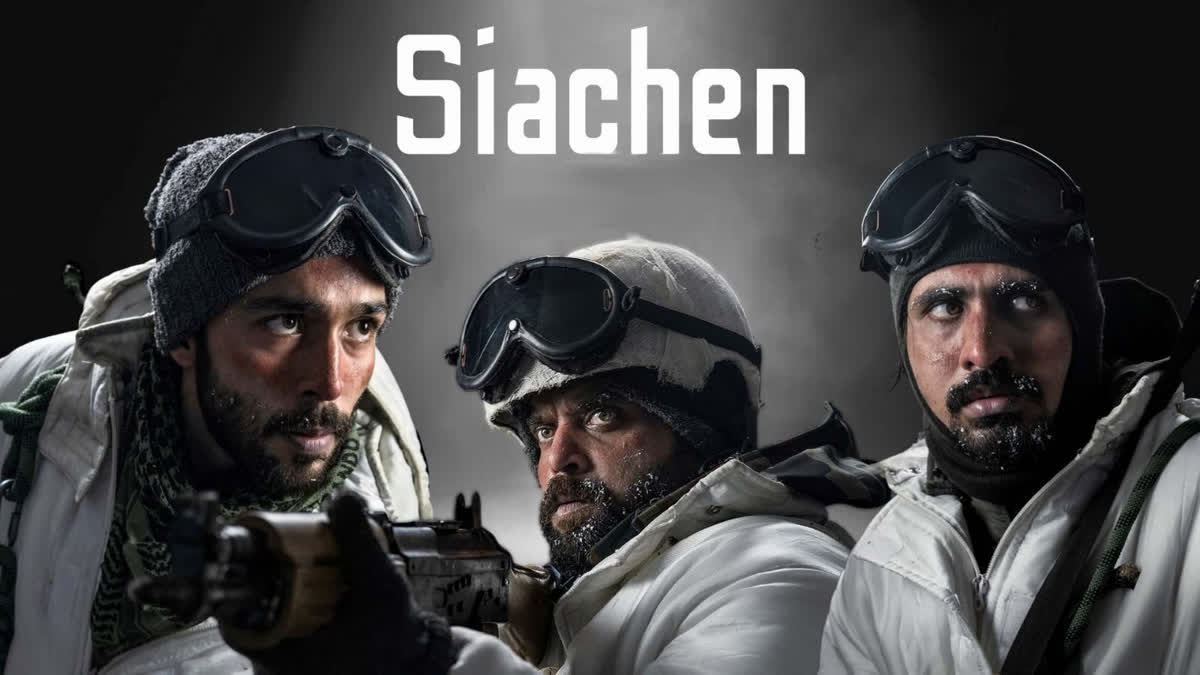Even as over 18 months have passed since it was staged the first time, Siachen, a survival drama play about four Indian soldiers stranded on the Siachen Glacier is running to packed houses. After a catastrophic blizzard washes away everything in sight, they are left with no news from the base. The days that follow test their beliefs and their bonds as they wait in hope for an evacuation. Directed by screen and stage veteran Makarand Deshpande, written by Aditya Rawal with Zahan Kapoor leading the cast, the play set in the highest and coldest battlefield, takes you through the hard lives of soldiers and questions the necessity of conflict. The play revolves around four Indian soldiers, who are stuck on the Siachen Glacier — known to be the coldest battlefield on the planet. Also featuring Chittransh Pawar, Niketan Sharma, Jatin Sarin, Girish Sharma, and Rohit Mehra, the 80-minute play is translated to Hindi by Raghav Dutt.
Why did Rawal choose such a complex subject for a play? “I have always been interested in geo politics and history and to me this idea that Siachen Glacier is a place which is at the height of 21000 feet where people can’t live ..that said, not a single bullet has been fired in that region for 20 years or so, due to a ceasefire between India and Pakistan. And yet, so many soldiers posted there lose their lives due to extreme weather and altitude,” he says, adding, “Although both nations have time and again expressed a desire to demilitarise the glacier, they haven’t been able to do so due to mistrust between them. To me, that was a tragedy of epic proportions, because it’s a tragedy of the human condition.Your mistrust is creating a conflict and then I realise that most of our real conflict whether it is cold war or whether it is larger political and land issues all around the world is born out of mistrust. Of course, there are conflicts and clashes where one side is greedy and one is simply invading the other but true conflict comes from mistrust and fear. These theoretical and conceptual things make a perfect representation in Siachen,” says Rawal, who, as part of research, visited Nubra valley [historical region of Ladakh] and the base camp. “A lot of army people who come to watch our play have really appreciated the research that has gone into it. Basic practices, alfaz [words and language], illness shown, officer’s hand going blue … all this is based on research,” he adds.
The play's narrative focuses on what a small group of soldiers should hold on to in an extraordinary situation like that, vis-à-vis their own ideologies, each other and their ability to tackle this extreme external force, which is the glacier. “First and foremost, the nature of the story, the nature of this conflict of isolation and an extreme inhospitable environment around them, the sense of feeling trapped, the dichotomy between hope and hopelessness, the futility or the necessity of their being there all of these things come up and all the characters have to confront these issues. It’s just a very fascinating opportunity to be able to explore this,” says Zahan Kapoor, who plays the character of Lieutenant Tanmay Bose, who is the commanding officer of Bana Top — the highest post on the glacier. He is in charge of this team of soldiers. “There are four of them in our story. And the story begins six months after they were sent there. Typically, three months is the duration, and they come back down to base camp, and then for their second commission or whatever duty that they have to go on to. But three months at a time is the maximum posting at a glacial outpost, because it’s too extreme to survive more than that. But unfortunately, after the three months were up, a terrible storm came in, a blizzard and washed away everything. They miraculously survived, but there has been no word from base until then, and the terrain has been upended. They find themselves in this predicament of should they hold onto the post, which is their first and fundamental duty, or do they abandon posts, so to speak, and try and retreat to safety. Or do they await evacuation, which is what they hope is coming. Because it should be coming, and that is the norm,” he elaborates.
He further adds, “Siachen is a story of relationship, it is a story of survival. What does it mean to put your life and kind of entire value system in the line? Siachen has been born out of a genuine question not only what is it like to live through circumstance as a soldier who has been trained in a particular way, think in a particular way, act in a particular way to perform his duty above all else but then to be able to improvise and to choose action based on values. During the rehearsal process what came to light is that it is a very unique kind of relationship, it is a relationship of authority and discipline but it is also a relationship of people who are in your care. It is unravelling of characters over a few days. It is a serious subject but also there is a lot of levity in it, a lot of dark humour in it. Above all it is tightly woven together as a piece of drama."
